After a Rs 800 million makeover, Bombay House reopened on July 29.
The earlier dull interior with low technology has given way to a lot more colour and vibrancy, reports Shally Seth Mohile.
Photographs: Hitesh Harisinghani/Rediff.com.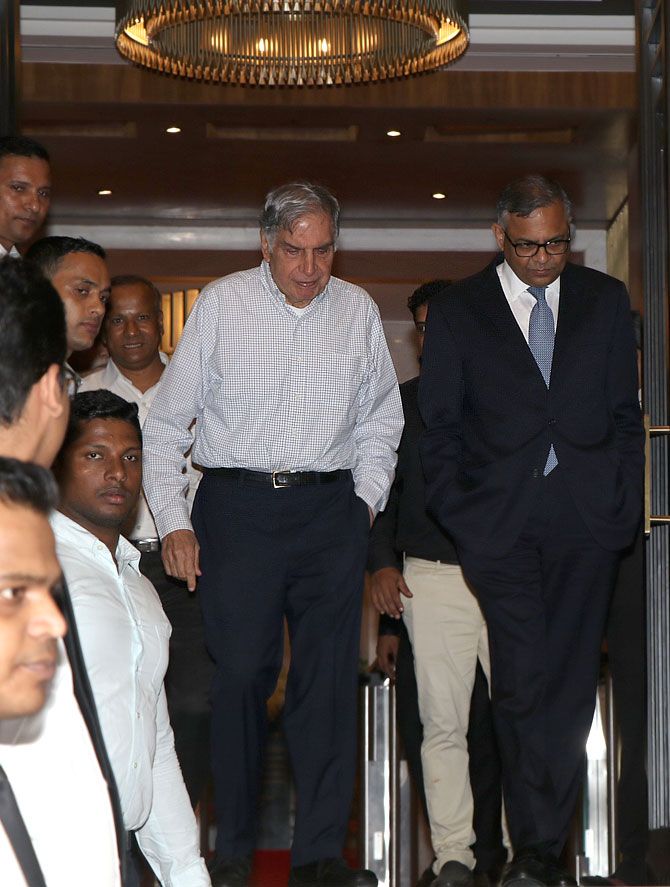
A Starbucks outlet and a Tata Experience Centre will welcome visitors to the newly refurbished Bombay House.
The 94-year-old iconic building, the headquarters of India’s largest corporate house, the Tata group, reopened on Sunday, July 29, which also marks the 114th birth anniversary of JRD Tata and 150 years of the group.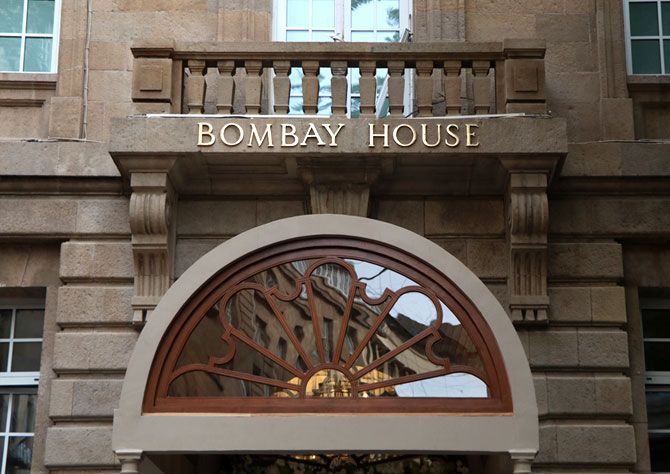
Close to 600 employees of Bombay House will step into a hi-tech new office that promises to have more open spaces and fewer closed offices.
The heritage building, which was shut in November 2017 for the first time, has undergone a thorough makeover of its interiors at an estimated cost of Rs 800 million, even as the façade retains the Edwardian neo-classical look. 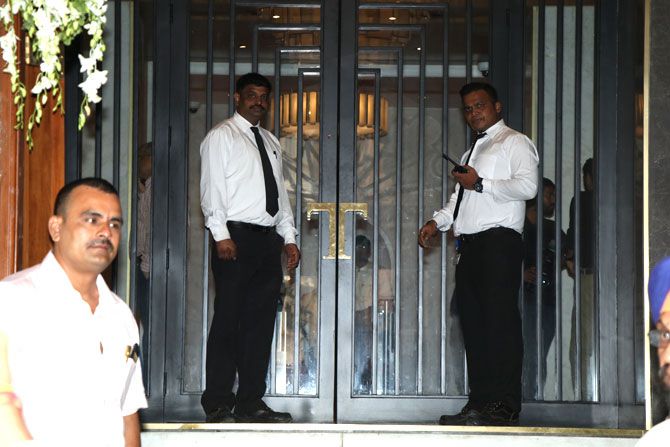
Sources said the interiors boasted plenty of natural light and an open-seating arrangement -- a reflection of the cultural change that has been sweeping through the group under the leadership of Tata Sons chairman N Chandrasekaran. Chandra, as he is popularly known, is a Tata-lifer who took over the reins of the salt-to-software group in February 2017. 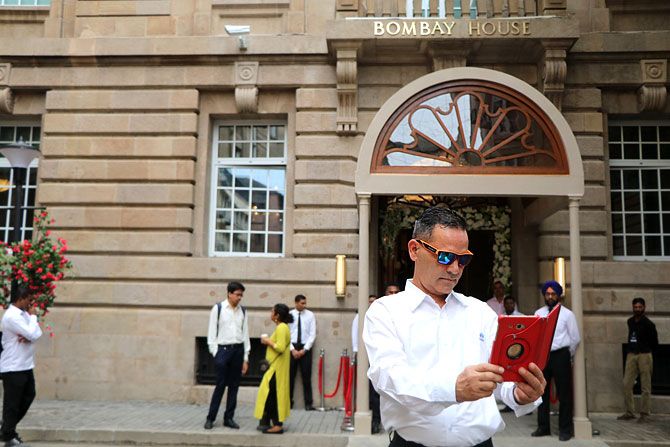
Another highlight of the new building will be the kennel on the side entrance meant for canines. The stray dogs have been indispensable to Bombay House for decades, according to a source. 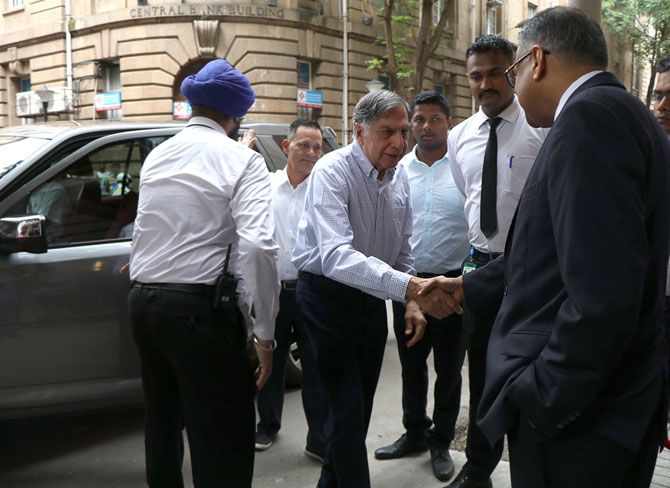
Overall, the earlier dull interior with low technology has given way to a lot more colour and vibrancy. For instance, the central spine of each floor has its own digitally-controlled, Wi-Fi-enabled meeting rooms, fitted with touch screens and other gadgets. The number of offices on each floor has been reduced, encouraging open space work culture in line with modern smart offices, said another source.
The removal of ledges from top and bottom of the windows allows plenty of natural light to come on the floor, said the source. 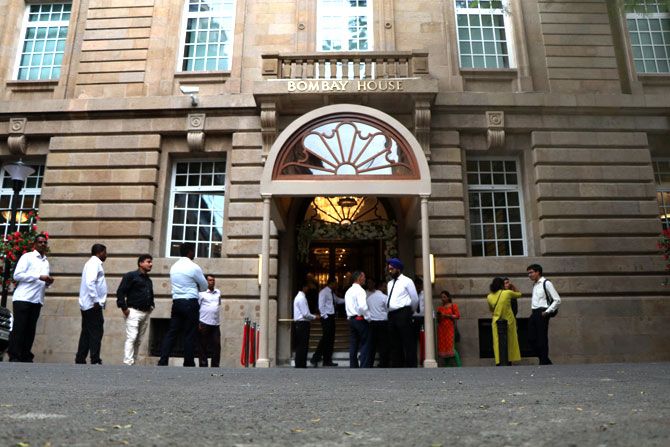
“The whole Bombay House has been going through a cultural shift. The shift also comes from the way you work,” said the source. The change is part of Chandra’s plan to give those working out of Bombay House a nicer and livelier workplace. Over the last 94 years since the building came into being, a lot of changes were made but most weren’t thought through, added the source.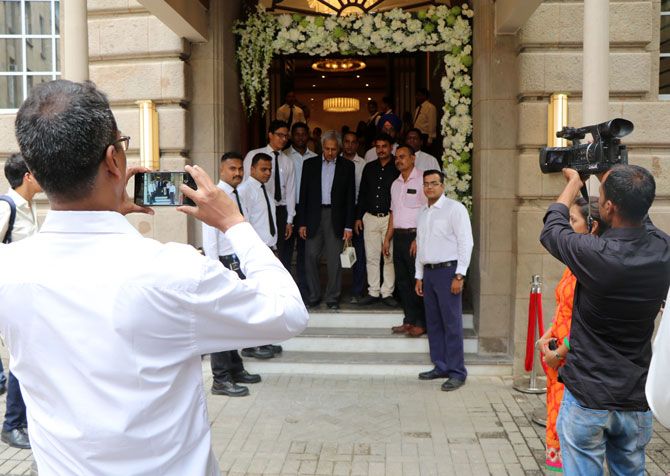
The renovation project has been executed by Brinda Somaya, founder of Somaya and Kalappa Consultant, who is no stranger to the Tata group, having designed Tata Consultancy Services’ Banyan Park campus as well as the group’s housing project. 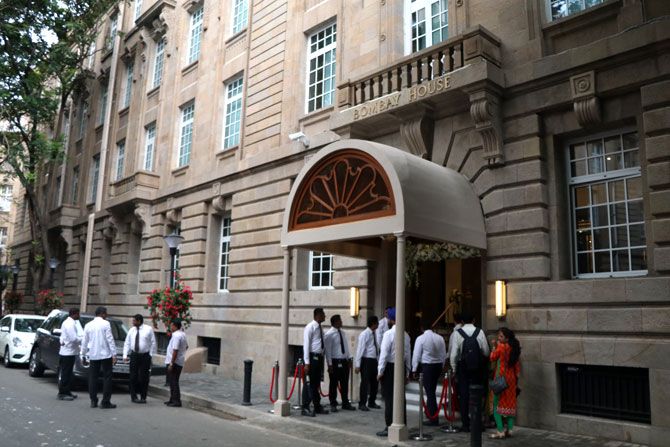
The iconic Bombay House building was built by the then chairman Dorabji Tata, elder son of group founder Jamsetji Tata. 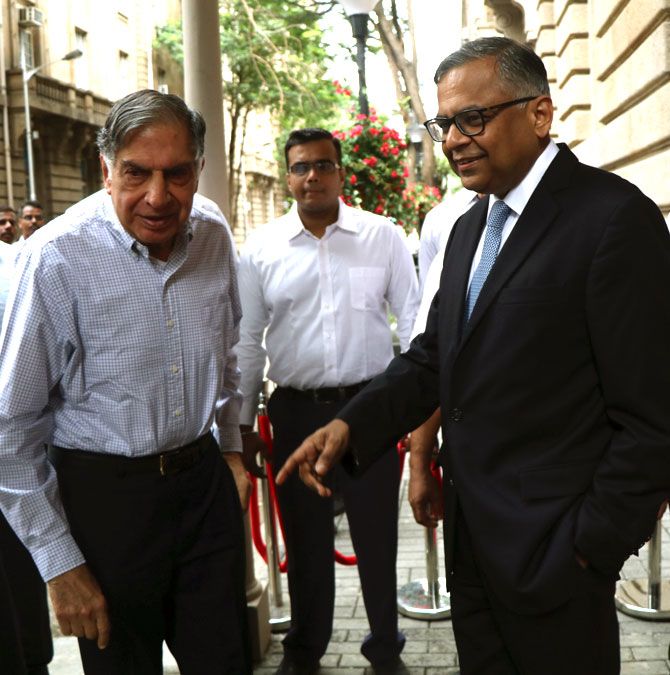
In 1921, he bought a 21,285-sq ft prime plot in south Mumbai from the municipal corporation for Rs 36 million as the group was not able to accommodate its growing ventures at its previous office at Navsari Chambers. 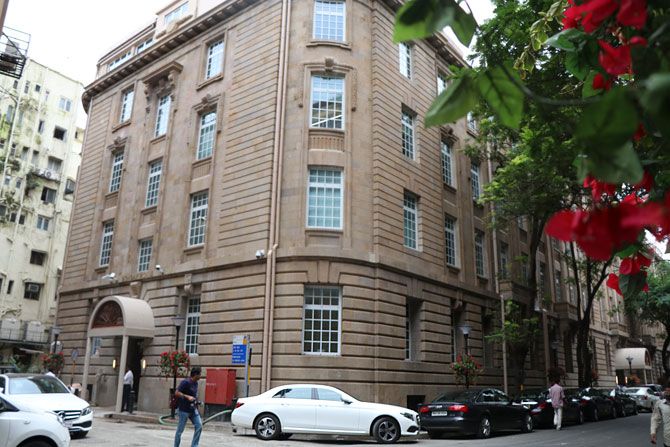
At that time, the group comprised six businesses -- textiles, steel, power, hotel, cement and a bank. In 1924, Scottish architect George Wittet designed the three-storey Bombay House. In 1942, an additional floor was added when JRD Tata became the group chairman.











